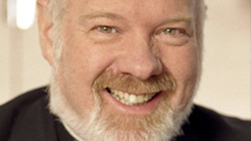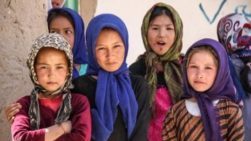Juneteenth, once more, provides an opportunity to reflect upon the need to continually advance justice and equality. This federal holiday reminds us that our nation and its institutions, including Catholic ones, have not infrequently perpetuated policies and practices of inequality.
It is worth noting the date of action that Juneteenth celebrates is Major General Gordon Granger’s order on June 19, 1865. It implemented the emancipation of slaves in Texas — more than two years after President Lincoln’s Emancipation Proclamation on January 1, 1863. This is a sobering reminder that words about freedom and equality are not self-implementing but need ongoing vigilance.
Our Catholic Charities agencies confront inequities in our society daily. Our agencies assist individuals and families facing crushing obstacles to live in dignity and meet basic needs.
Catholic Charities of New York must continually reflect upon limitations and injustices, subtle or overt, in our own operations and in the world around us. We cannot fail to do our part to move the arc of history further toward justice. With humility, we must admit our forward steps are halting, partial and always insufficient — and recommit ourselves to even more vigorous steps.
This Juneteenth, 2024 is marked with crises of injustice, violence and war plaguing almost every continent. Our vision of and work for justice must be broad enough to embrace these.
In the current politicized environment, we maintain our focus on people not ideology. In this divisive era, caution is called for in ascribing motives to others and respect and civility is needed as we raise our efforts to foster equality and justice.
For us it is simple: every person is made in the image and likeness of God, worthy of dignity and respect. Dignity and respect require that basic human rights are able to be exercised and that basic human needs are met. Much of Catholic Charities of New York’s work focuses on meeting basics such as food, shelter and work. Catholic values affirm these, and others, as basic and universal, and rejects policies and actions that discriminate in the exercise of these rights and meeting these needs.
Our Catholic Charities mission includes “building a society that is more just and compassionate.” To achieve this, human actions are necessary, but insufficient. God’s grace and accompaniment must be an essential part.
Allow me to end with Psalms 46:
Blessed is he whose hope is in the LORD, his God,
the Maker of heaven and earth,
He grants justice to the oppressed
and gives bread to the hungry.
The LORD releases prisoners
and opens the eyes of those who cannot see.
The LORD lifts up those who are bowed down;
The LORD watches over the stranger
and sustains the fatherless and the widow,
but he blocks the way of the wicked.
The LORD will reign forever.
With gratitude,
Msgr. Kevin Sullivan
Executive Director












